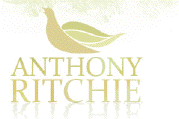

Coming to It
by Anthony Ritchie, for narrator and orchestra, Opus 91
'Coming to It' was composed with Sam Hunt's performance poetry in mind (although the work can be played with other speakers). The piece runs without a break, with the poems separated by musical interludes of varying length. Of necessity, the music simplifies when the poems are being read, and becomes more prominent when the speaker is silent. Ideally the music can stand alone, but obtains its full intensity when the poems are present.
- Year: 1999
- DURATION: 19'00
- TEXTS: Sam Hunt
- COMMISSIONED BY: Wellington Sinfonia
- INSTRUMENTATION: for orchestra and NARRATOR, 2 flute, piccolo, 2 oboe, English horn, 2 B flat , alto saxophone in E flat, 2 bassoons, 2 horns, 2 trumpets in B flat, 2 percussionists (playing tam tam, bass drum, large suspended cymbal, wind chimes,glockenspiel, xylophone, bongos, 2 woodblocks (large and small), drum kit (including suspended cymbal, bass drum, small tom tom) guitar (amplified) strings
- LEVEL: 3 | Professional and semi-professional musicians
Listen to a sample
Programme Note
I have long enjoyed Sam Hunt's poems, and fondly remember him performing when I was a student (and more recently, too!). So I was excited when asked by the Wellington Sinfonia to write music to go with a reading from Sam. As part of the process, I got to visit Sam on Waiheke Island and we mulled over which poems to include in the piece. It seemed to me we had a lot in common as far as the world of music and poems was concerned. We both wanted to avoid academic pretension, and create a piece that speaks from the heart about everyday issues that concern ordinary people. So there are poems about mothers, fathers, lovers, children and also dogs. They touch on life and death, and the little incidents inbetween that on the surface seem insignificant but take on meaning for those involved.
Sam kindly agreed to record the poems for me, so I could keep the sound of his voice in my mind while writing the music. This also allowed me to get an approximate timing for the poems, so I could structure the music around them.
The music is, I hope, multi-purpose. Sometimes it simply sets the scene for the poem, as in the opening poem Coming to it. Other times I have tried to emphasise a particular mood suggested in the poem, such as the moving acceptance of death in Hey Minstrel, or the momentus appreciation of birth (as well as death) in Birth of a Son. Reference to a blues-based style seemed to work with the Plateau Songs, while there are elements of folk-song in A White Gentian, where the guitar and flute play a duet. Occasionally there is musical description of the text, such as the percussive, migraine-like qualities in You House the Moon. But above all, I want the combination of music and Sam's poems to create a unity, a sound-world that is new and interesting. Obviously, Sam's poems and his performance of them are perfectly capable of standing alone, so the music aims put them in a different light (and sound).
The piece runs without a break, with the poems separated by musical interludes of varying length. Of necessity, the music simplifies when the poems are being read, and becomes more prominent when the speaker is silent. Ideally the music can stand alone, but obtains its full intensity when the poems are present.